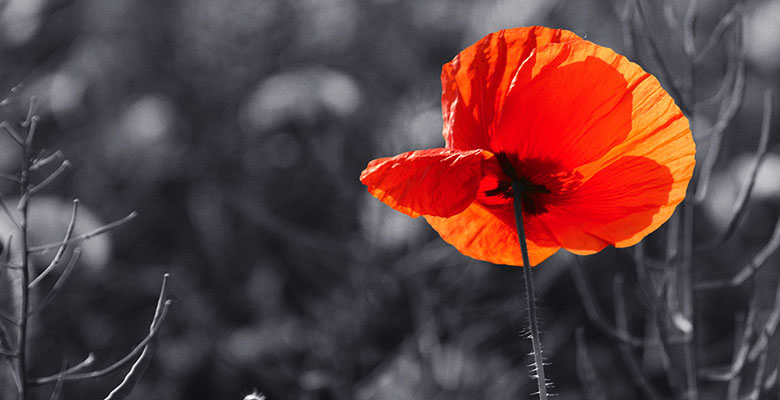Securing the future of Remembrance Day

With younger generations finding it increasingly difficult to relate to the World Wars, LJMU is working to secure the future of Remembrance Day through two innovative, nationally-funded, research projects. ‘Reimagine the Veteran’ and ‘War Widows’ Stories’ both encourage us to question our understanding of who was, and continues to be, affected by war.
The projects challenge the stereotypical images many of us have of war victims and heroes by capturing the views and memories of often overlooked groups also affected by war.
Through raising awareness of these groups, and making their recollections permanently available, the projects aim to help future generations relate more easily to Remembrance Day.
Dr Emma Murray, Lead Investigator for the Reimagine the Veteran project and Senior Lecturer at LJMU’s School of Law, explains: “To 'Reimagine the Veteran' is a call to take seriously the voices and lived experiences of veterans in the 21st century – especially those veterans who do not identify with popular imagery of what it means to be a veteran.
"Both the public and those who have served in recent times imagine the veteran to be someone from WW1 or WW2 – generally they imagine an older generation wearing medals and uniform with pride. For those in their early 20s, this preconceived image goes further than to exclude them from acts of Remembrance – they also exclude themselves.
“As part of the Reimagine the Veteran project, we ask former members of the armed forces to create new imagery which represents their lives. The results for most of us are surprising, for example, they never once see themselves in uniform.”
Dr Nadine Muller’s project, War Widows' Stories, also deals with often ignored and stereotyped voices: those of war widows. She comments: “Every year on 11 November we recognise and commemorate the sacrifices of those who have fought and fallen in service for our country. Yet, we know little about the experiences of the wives and families they leave behind. If we hear about war widows in the news at all, our attention is often directed to women who lost their husbands as a result of heroic battles. Implicitly, we are told that these women are only worth listening to because their spouses were heroes. But we must not forget that war claims its victims in all kinds of ways, and over long periods of time. War widows are a diverse group of women, and all of their stories are worth hearing and worth remembering.
“The Heritage Lottery Fund has awarded the University a Sharing Heritage grant which allows me to work with the War Widows' Association of Great Britain. Together, we will record war widows' stories and create a living archive that brings together oral history interviews and historical sources. In doing so, we want to tell the stories of war widowhood in Great Britain, past and present.”
Both projects will create online resources, to ensure the views of these usually forgotten groups are publicly available and to secure their permanency.
Dr Murray adds: “We are taking experiences both old and new and using modern day technology to not only make readily available the views of these often overlooked groups but to ensure future generations understand and recognise how war impacts upon all aspects of society. In a time of relative peace, this understanding in itself could help to ensure the safety and security of our young people, their children, and their grandchildren.”
Visit the Reimagine the Veteran microsite.
Find out more about the War Widows’ Stories.
Dr Nadine Muller gave an in-depth interview on Radio 4’s Woman’s Hour about the War Widows’ Stories project. Listen here 16 mins in. While Dr Emma Murray featured on Roger Phillips’ Radio Merseyside show, discussing the Reimagine the Veteran project. Listen here 33mins55secs in.


